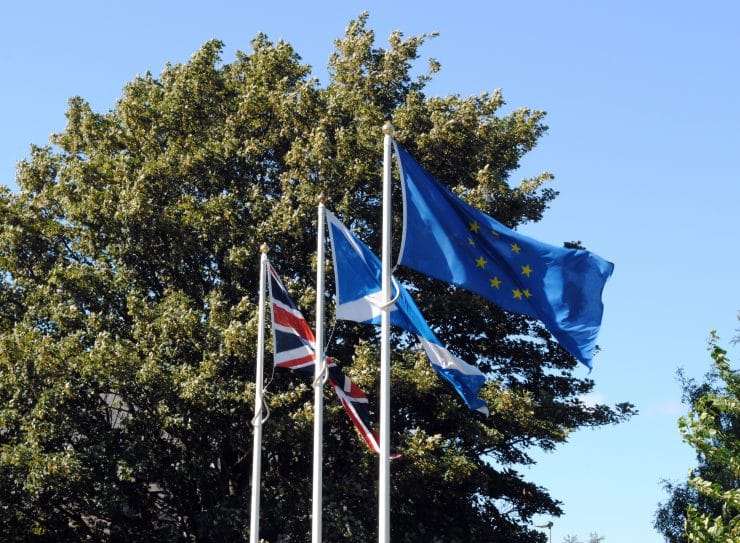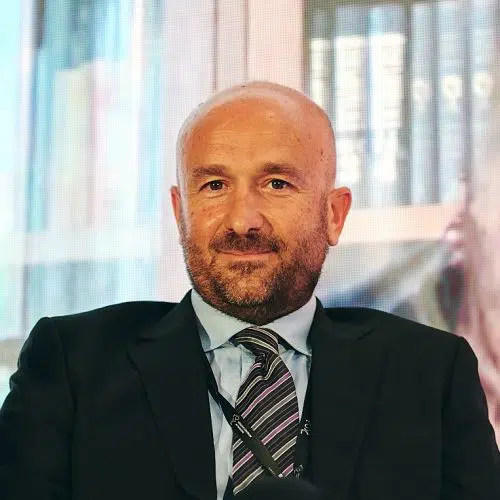6 February 2023
25 – Changing a political opinion
It is common knowledge that independence dreams are often risky business with complicated ramifications.

It is common knowledge that independence dreams are often risky business with complicated ramifications.

ISSN: 2736-6065
Blog Post by Ricardo Silvestre, International Officer at Movimento Liberal Social
London Calling is the European Liberal Forum’s column aimed at bridging the Channel.
Until recently, I have been sympathetic to the idea of an independent Scotland, breaking its historical ties with the United Kingdom (UK) and, with that, potentially becoming a member state of the European Union (EU). I studied the 2014 Scottish independence referendum, particularly due to the alleged Russian interference. It was obvious from the analysis of the results that, at the time, Scottish people were not ready to begin such a transformative project.
After the 2016 United Kingdom European Union membership referendum (Brexit), there were debates in the House of Commons, where the Liberal Democrats and the Scottish National Party (SNP) made passionate and convincing arguments for a second referendum and for an exit deal that would not hurt Scotland and the Scots. Nothing of the like happened. In fact, the successive Tory governments have not only disregarded the aspirations of most of Scotland, but they also “burned bridges” with the European Union and, significantly, with Northern Ireland, promising things that it was evident would not materialize. Thankfully the fact that they have not followed through on all these threats has allowed the crucial Good Friday Agreement to be preserved for now.
It is common knowledge that independence dreams are often risky business with complicated ramifications. There are known cases of separatism in Spain, with Catalonia being the most recent. There are those who believe that Belgium should cease to exist. There was the amicable and consummated separation of Slovakia and the Czech Republic. And these examples were during peaceful times and mostly through democratic processes. Let us not forget what happened in the Western Balkans, or in the Basque Countries, or with Republicans and Unionists in Ireland. Still, when the SNP, through its leader Nicola Sturgeon, expressed the will to have a second referendum for independence, not only was I in agreement, but believed that the departure of Scotland from the UK and its ascension to being a member state of the EU would be the best outcome for all parts.
Then I changed my (political) mind. In an increasingly polarised world with growing tribalism and plenty of systems of self-reinforcement, it is good to know that a change in opinion can still happen. Visiting our friends from the Scottish Liberal Democrats to attend their Fall Conference, it was explained to me, and I was convinced by it, that there is a better option: a federated UK. Four nations, a family of nations, working together as a bloc while maintaining home rule and autonomy. This is, in fact, a liberal idea. We, liberals, believe in strength in union, developing international relations, free trade and movement, and working together equally for a better future. For Scotland, it is the opportunity to achieve full devolution, maintaining all the cultural, economic, social, and political ties with their neighbours. Scottish people would have a parliament with full powers to manage Scotland’s domestic policies and everyday needs. This would be helped by the capacity of the government and the parliament to share legislative functions while managing the country’s budget.
Equally, for the UK, a federated union gives a choice to the voters from the four jurisdictions to decide what type of public services they need and how they will be managed. This will then create a system of “checks and balances” that are absent in the actual constitutional framework. It also solves the West Lothian Question by allowing policy decisions for each jurisdiction to be made by the ones elected by the constituents in said jurisdictions.
The federated UK will reinforce the actual benefits of the Union, maintaining the current status quo in fiscal issues, offering a single market that includes services, capital and labour, and participating in joint decisions regarding international affairs. A federal arrangement would honour the hundreds of years of the shared history of the Kingdom but look towards a future in a fully developed cooperation. Federated (and confederated) states already exist in Europe, and many of the citizens of the EU want the bloc of nations also to go the way of a Federation. As for the UK, some interesting initiatives can be observed: further Scottish devolution continues to be discussed, and the former Prime Minister Gordon Brown has just completed a Commission on the UK’s Future for the opposition Labour party. What would a federated UK look like? How would that then relate to a return to the EU family? It is hard to anticipate. However, one thing we do know, each year that passes after Brexit, more and more Brits think that it was a disastrous idea.
After the recent UK Supreme Court decision, which stated that decisions which relate to the union are a matter for the whole of the UK and undermined SNP claims that they could hold a referendum without UK agreement, it seems unlikely that a legislative initiative will allow another referendum to happen. The SNP may still wish to pursue independence for Scotland. They have the right to try to change people’s minds about leaving the UK (and joining the EU). But, unlike before, I now hope that the Scottish people, if called to express their desires, would prefer to work for a federated UK and a return of the whole isles to the EU family, as it is defended by our friends from the Scottish Lib Dems. Maybe the Scots and the Brits at large can change their (political) minds. It happened to me.
Author bio:

Ricardo Silvestre is the Senior Researcher and International Officer of the Portuguese think-tank Social Liberal Movement. He hosts the Liberal Europe Podcast, and is the author of think pieces and scientific articles. Ricardo holds a PhD in Philosophy of Science and a Masters’s degree in International Relations.
Published by the European Liberal Forum. The opinions expressed in this publication are those of the author(s) and do not necessarily represent those of the European Liberal Forum.